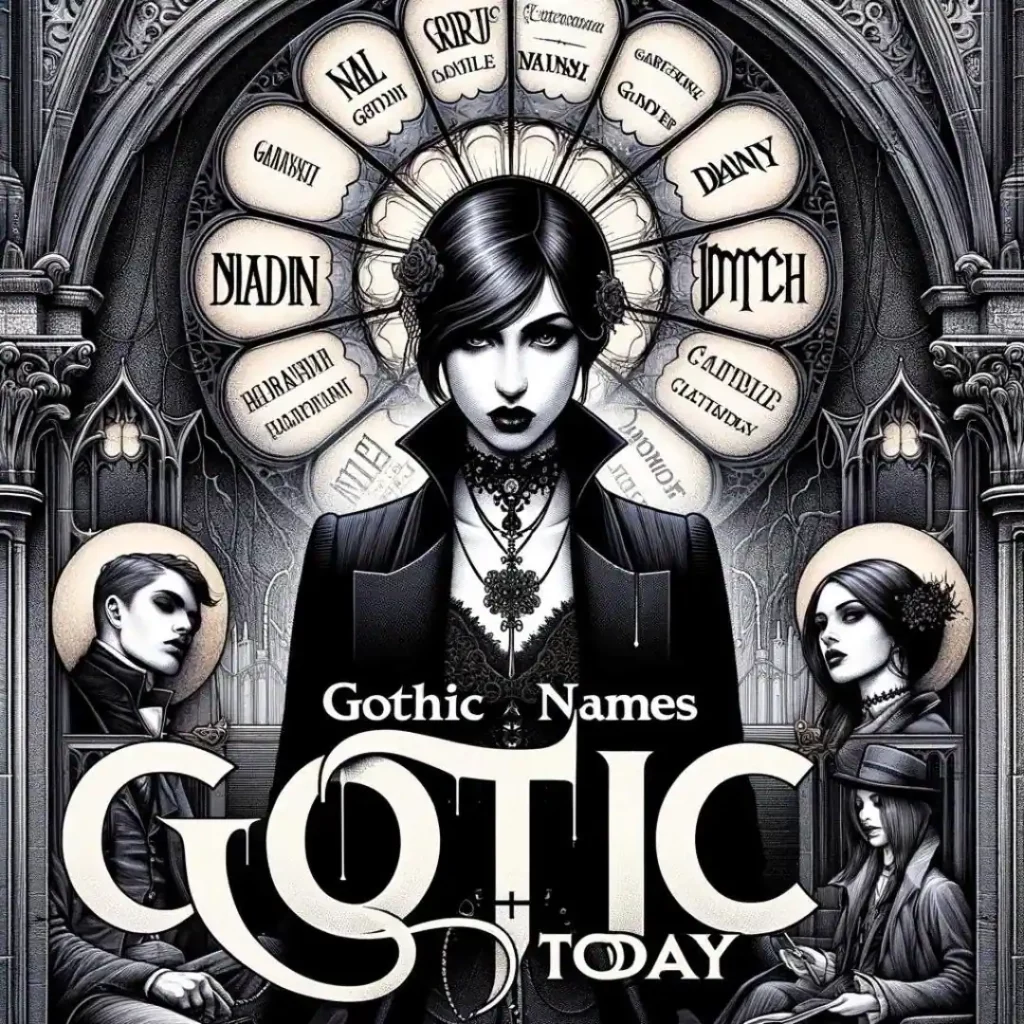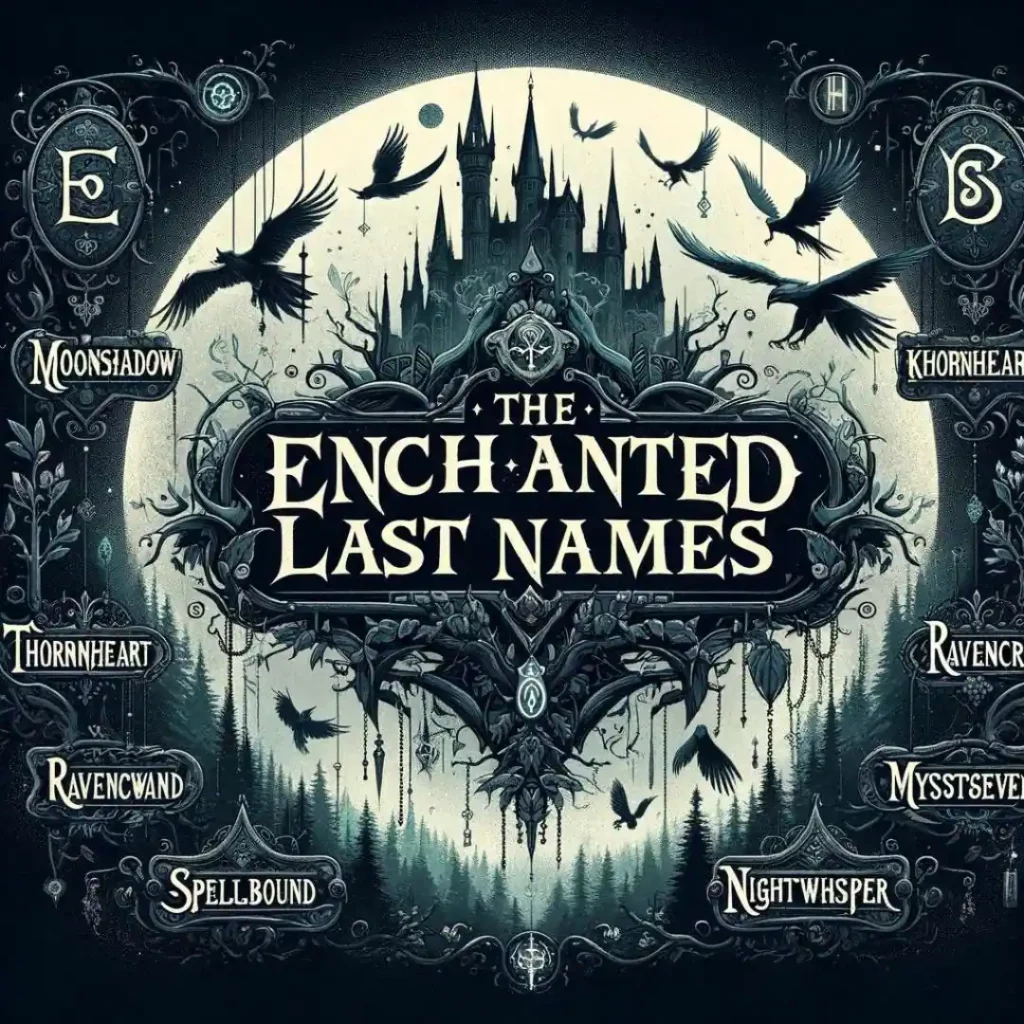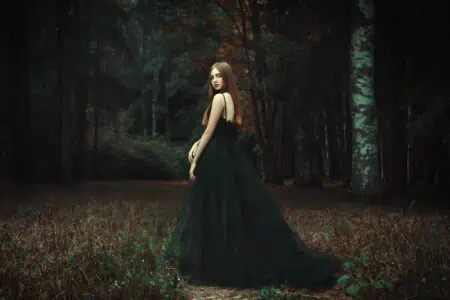
INTRODUCTION.
Gothic last names hold a mystique that transcends mere nomenclature, evoking a sense of history, tradition, and often, a hint of the macabre. In this exploration, we delve into the origins, characteristics, and significance of these enigmatic surnames, shedding light on their influence in both historical and modern contexts.
Origins and History of Gothic Last Names
Early Gothic Naming Conventions
trace their origins back to ancient naming conventions prevalent in Germanic tribes, particularly during the migration period. These names often reflected characteristics such as lineage, occupation, or physical attributes.
Influence of Geography and Culture
The development was heavily influenced by geographical factors and cultural exchanges. As Germanic tribes migrated and interacted with other civilisations, their naming practices evolved, incorporating elements from diverse linguistic traditions.
Common Characteristics of Gothic Last Names
Prefixes and Suffixes
Gothic last names often feature distinctive prefixes and suffixes that convey specific meanings or denote familial connections. Prefixes like “Van” or “Von” indicate noble lineage, while suffixes such as “-son” or “-sen” signify patrimonial descent.
Meaning and Symbolism
Each component of a Gothic last name carries symbolic significance, reflecting aspects of ancestry, profession, or geographic origin. These names serve as linguistic artefacts, preserving fragments of historical identity within their etymology.

Notable Examples
Literature abounds with characters bearing Gothic last names, from the mysterious “Dracula” to the brooding “Rochester.” These names contribute to the atmospheric richness of Gothic fiction, imbuing characters with a sense of foreboding or allure.
Popular Culture
In contemporary media, Gothic last names continue to captivate audiences, appearing in films, television shows, and video games. From the haunting elegance of “Estrange” to the ominous allure of “Dark wood,” these names evoke a sense of otherworldly charm.
Modern Usage and Trends
Adaptation in Contemporary Society
While have ancient roots, they have adapted to modern society, with individuals embracing them for reasons ranging from artistic expression to personal identity. This trend reflects a broader cultural fascination with the romanticism and mystique associated with the Gothic aesthetic.
Evolution
In recent years, Gothic last names have undergone a renaissance, experiencing a resurgence in popularity among diverse demographics. This resurgence underscores their enduring appeal and the timeless allure of ancestral heritage.
Impact on Identity and Perception
Psychological Aspects
can profoundly influence individuals’ perceptions of themselves and others, shaping their sense of identity and belonging. For some, these names serve as a link to a rich tapestry of ancestral history, while for others, they represent a form of self-expression and empowerment.
Cultural Significance
Beyond personal identity, Gothic last names hold cultural significance, serving as markers of heritage and tradition. They contribute to the collective narrative of cultural diversity, enriching our understanding of human history and interconnections.
Exploring: A Personal Journey
Embarking on a journey to explore one’s Gothic last name can be a deeply enriching experience, unveiling hidden layers of familial lore and historical context. Whether delving into archives or tracing genealogical roots, this exploration offers a glimpse into the tapestry of human existence.

Embracing: Breaking Stereotypes
In a world often plagued by stereotypes and preconceptions, embracing one’s Gothic last name can be an act of defiance against societal norms. By reclaiming these names with pride and authenticity, individuals challenge conventional notions of identity and celebrate the diversity of human expression.
A Personal Journey
Embarking on a journey to explore one’s Gothic last name can be a deeply enriching experience, unveiling hidden layers of familial lore and historical context. Whether delving into archives or tracing genealogical roots, this exploration offers a glimpse into the tapestry of human existence.
Embracing: Breaking Stereotypes
In a world often plagued by stereotypes and preconceptions, embracing one’s Gothic last name can be an act of defiance against societal norms. By reclaiming these names with pride and authenticity, individuals challenge conventional notions of identity and celebrate the diversity of human expression.
Modern Interpretations and Innovations
In contemporary art and literature, Gothic last names serve as a means of creative expression, lending a touch of intrigue and allure to characters and narratives. Writers, artists, and performers often adopt Gothic-inspired pseudonyms to evoke a sense of mystery or aesthetic resonance.
Social and Cultural Movements
The Gothic subculture, with its fascination for the macabre and the mystical, has embraced as symbols of collective identity and solidarity. From music genres like Gothic rock to fashion trends characterised by dark aesthetics, these names permeate various aspects of alternative culture.
Navigating Challenges and Misconceptions
Stereotypes and Misunderstandings
Despite their cultural richness, Gothic last names are sometimes subject to stereotypes and misunderstandings, with misconceptions perpetuated by media portrayals and societal biases. It is essential to challenge these preconceptions and foster a more nuanced understanding of Gothic heritage.
Legal and Social Implications
In some contexts, individuals with may encounter challenges related to prejudice or discrimination. Heightened awareness of legal protections and social advocacy efforts can help address these issues and promote greater exclusivity and acceptance.
rooted in rich history and laden with symbolism, serve as more than mere identifiers; they encapsulate lineage, heritage, and often carry tales of ancestral legacies. These surnames, entrenched in cultural significance, offer a glimpse into the past while shaping identities in the present.
Importance of Last Names Last names, or surnames, are integral components of personal identity, reflecting familial connections, geographic origins, or even professions. They serve as societal markers, linking individuals to broader kinship networks and historical narratives.
History
Gothic last names trace their origins to ancient Germanic tribes, notably the Goths, who inhabited regions of Europe during the late antiquity period. These names evolved from tribal affiliations, occupations, or physical characteristics, reflecting the sociology-cultural milieu of the time.
Evolution Over Time Over centuries, Gothic surnames underwent transformations, influenced by linguistic shifts, societal changes, and intercultural exchanges. From archaic forms rooted in Old High German to modern adaptations, these names reflect the dynamic nature of language and identity.
Cultural Significance Beyond their linguistic roots, Gothic last names hold cultural significance, embodying narratives of conquest, migration, and assimilation. They serve as reminders of historical upheavals and societal transformations, contributing to the tapestry of human experience.
Characteristics
Common Features of Gothic Last Names Gothic last names often exhibit distinctive features, such as consonant clusters, archaic prefixes, or suffixes denoting lineage. These linguistic nuances lend a sense of antiquity and mystique to surnames, evoking imagery of medieval landscapes and Gothic aesthetics.
Symbolism in Gothic Surnames Beyond their phonetic qualities, Gothic surnames carry symbolic meanings, reflecting ancestral virtues, aspirations, or cultural affiliations. Whether invoking images of strength, resilience, or mystery, these names evoke a sense of identity deeply rooted in heritage.
Famous Gothic Last Names
Literary Figures In literature, gothic last names adorn iconic characters, from the brooding Heath cliff in Emily Bronte’s “Withering Heights” to the enigmatic Dracula in Bran Stoker’s eponymous novel. These names not only define characters but also imbue them with mythic allure.
Historical Figures Throughout history, gothic last names have been associated with notable figures, such as the philosopher Fried rich Nietzsche or the poet Edgar Allan Poe. These surnames, etched in the annals of time, serve as markers of intellectual prowess and cultural legacy.
Contemporary Examples In contemporary culture, gothic last names continue to captivate imaginations, whether in the realms of music, film, or fashion. From the ethereal allure of Sioux Sioux to the haunting melodies of Nick Cave, these names evoke a sense of intrigue and allure.
Gothic Last Names: A Reflection of Tradition and Identity
Naming Practices
Traditions and Customs The naming of individuals carries deep-rooted traditions and customs, with gothic last names often reflecting familial lineages or ancestral ties. These naming practices, steeped in cultural significance, serve as a link between past and present generations.
Influences on Naming Gothic last names are influenced by a myriad of factors, including geographic origins, religious beliefs, and societal norms. Whether derived from occupations, geographic landmarks, or familial crests, these names reflect the diverse tapestry of human experience.
Regional Variances Across different regions and cultures, exhibit variances in phonetics, morphology, and meaning. From the guttural sounds of Scandinavian surnames to the lyrical cadence of Romance languages, these regional nuances enrich the linguistic landscape.
Popularity
The popularity of gothic last names ebbs and flows with cultural trends, influenced by factors such as literature, film, and sub cultural movements. While some names experience resurgence due to nostalgic appeal, others fade into obscurity over time.
Factors Influencing Popularity The popularity is influenced by a multitude of factors, including media representation, societal perceptions, and individual preferences. Names associated with iconic figures or literary motifs often enjoy renewed interest among aficionados.
Impact of Media and Entertainment Media and entertainment play a pivotal role in shaping perceptions of gothic last names, with iconic characters and narratives embedding themselves in popular consciousness. From blockbuster films to cult TV series, these portrayals fuel fascination with gothic aesthetics.
Gothic Last Names: Embracing Identity and Expression
Adoption
Changing Surnames to Gothic In contemporary society, individuals may choose to adopt gothic last names as a form of self-expression or cultural affinity. Whether inspired by literature, music, or personal beliefs, these name changes reflect a desire to align with gothic aesthetics and ethos.
Legal Considerations The adoption of may entail legal considerations, including name change procedures, documentation requirements, and societal implications. While individuals have the right to choose their names, legal frameworks ensure accountability and clarity in official records.
Social Implications The decision to adopt may carry social implications, ranging from acceptance within peer groups to potential misunderstandings or biases. While some embrace gothic identities wholeheartedly, others may navigate societal perceptions with caution.
Uniqueness
Gothic last names offer individuals a means of standing out in a world inundated with common surnames, allowing for personal expression and differentiation. Whether seeking to evoke mystery, elegance, or rebellion, these names serve as statements of individuality.
Personal Identity For many, are more than mere identifiers; they are reflections of personal identity and values. Whether rooted in familial traditions or chosen as symbols of self-empowerment, these names shape perceptions of self and foster a sense of belonging.
Perceptions and Stereotypes Despite their allure, may evoke stereotypes or misconceptions, leading to assumptions about personality traits or affiliations. Navigating these perceptions requires nuance and understanding, as individuals assert their identities beyond preconceived notions.
Gothic Last Names: Influence and Representation
Cultural Impact
Influence on Art and Fashion Gothic last names permeate various facets of culture, from art and literature to fashion and design. Whether inspiring gothic motifs in architecture or influencing subcultural aesthetics, these names leave an indelible mark on artistic expression.
Representation in Media Media representations of often reflect broader cultural narratives, shaping perceptions and stereotypes. While some portrayals embrace gothic aesthetics authentically, others may perpetuate cliches or misconceptions, highlighting the need for diverse representation.
Gothic Subculture Within the gothic subculture, last names serve as badges of belonging, signalling allegiance to shared values and aesthetics. Whether embracing gothic literature, music, or fashion, subculture members find solidarity in their shared appreciation for the darkly romantic.
Future Trends
Predictions and Speculations Looking ahead, the future of is marked by innovation, adaptation, and continued fascination. As societal norms evolve and subcultures redefine themselves, gothic identities may undergo transformations, reflecting changing attitudes and aspirations.
Moderation and Adaptation In an increasingly interconnected world, may undergo modernisation and adaptation, reflecting shifting cultural landscapes and emerging trends. Whether through hybridisation with other naming conventions or reinterpretation of traditional motifs, these names remain dynamic and relevant.
Conclusion
Gothic last names transcend mere labels, serving as portals to a realm of ancestral legacy and cultural richness. As we unravel the mysteries of these evocative surnames, we discover not only our own identities but also the interconnected tapestry of human history. Embracing our Gothic heritage allows us to forge deeper connections with the past while embracing the complexities of the present.
Recap of Key Points steeped in history and symbolism, serve as timeless markers of identity and heritage. From their ancient origins to contemporary adaptations, these names continue to captivate imaginations and shape cultural narratives, embodying the enduring allure of the gothic aesthetic.
Looking Ahead As society evolves and cultural expressions diversify, will undoubtedly continue to play a role in shaping individual identities and collective imaginations. Whether as echoes of the past or beacons of future trends, these names remain enduring symbols of human creativity and expression.

